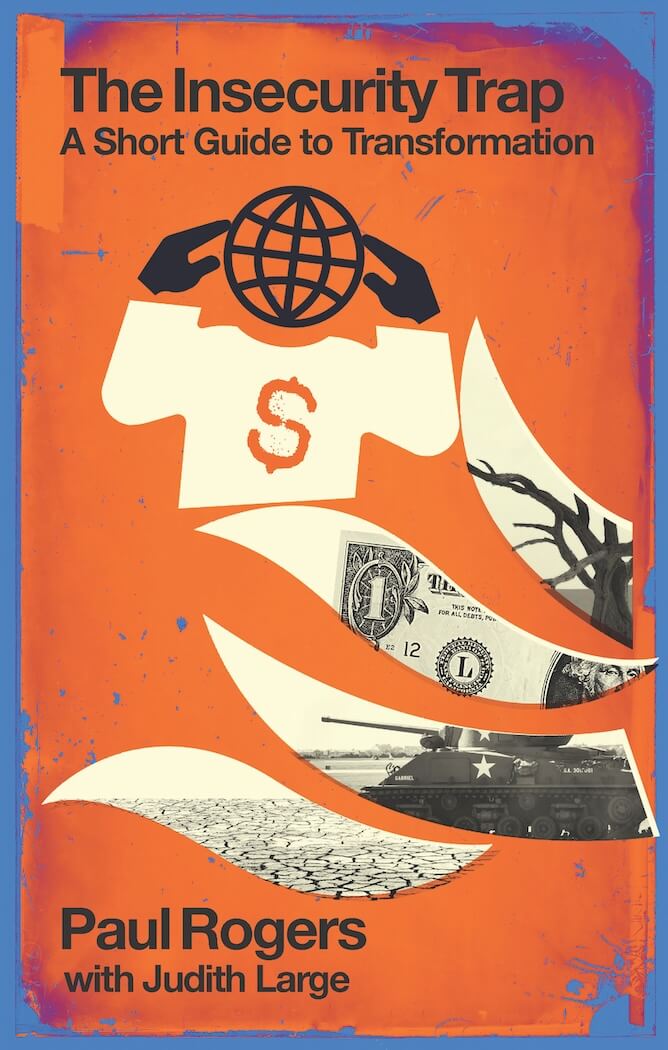Description
‘Few if any prophets have been so calm, steady and thoroughly vindicated as Paul Rogers. At the time he warned that if the USA invaded Iraq it would initiate a disastrous thirty year war that would spread out across the Middle East and suck America to defeat. And here we are, only two-thirds of the way through. Equally, he emphasised at the start of the century the twin dangers of climate change and hi-tech bellicosity. Free from florid rhetoric, incredibly patient and rooted in careful research, he needs to be read and listened to. Now in this lucid overview of the current ‘polycrisis’ he sets out what can be done before it is too late.’
Anthony Barnett, co-founder and former editor of openDemocracy
People ask what is going wrong with the world, with new wars, extreme populist movements, climate breakdown, poverty, inequality and exclusion. There is a sense of unease, that ‘things are falling apart’, which is reflected both in global insecurity; a seeming failure to negotiate or mediate effectively in desperate wars (Ukraine, Sudan, Gaza) and a dismay at social injustice and rising poverty. This short book meets such concerns head-on, analysing the worsening insecurity trap we are in – and how to get out of it.
In the troubled decade that lies ahead, we have the combination of a bitterly divided world facing limits to growth and even climate breakdown. However, this is in a pervasive culture where national governments prioritise a security approach of hard militarism to enforce stability and protect the better off. Paul Rogers argues that in responding to the prospect of ‘a crowded glowering world’, there are three questions to answer:
- Can we come to terms with the environmental limits to growth in time?
- Can we transform the world economy to ensure that there is far better sharing of what we have?
- Can we change our understanding and practice of international security to focus on a human security approach that works for all, not just a minority elite?
Contents
- Foreword: Setting the Scene
- Introduction: A Short Guide to Transformation
- 1. Limits to Growth
Climate Breakdown - 2. It’s the Economy, Stupid!
Socio-economic divisions and their impact, including the origins and impacts of neoliberalism - 3. Now Thrive the Armourers
Military-industrial complexes, their culture, how they work and how they limit the new thinking on security - 4. So, Where Are We Now?
The current predicament, prospects for positive changes and whether they can come fast enough; achieving rapid decarbonisation, a reformed economy and rethinking security; how to act to help ensure we succeed - 5. What Can Be Done?
Future Possible - Resources
- Author Biographies
- Acknowledgements
‘a useful introduction to a subject often sidelined by the left and avoided by those who are put off by the jargon that often accompanies the topic. Rogers’ redefinition of security away from military capabilities makes the discussion here vital and accessible.’
Mike Phipps, author of Don’t Stop Thinking About Tomorrow
The Author
Paul Rogers is Professor Emeritus of Peace Studies at Bradford University, working there for over forty years. He trained initially in the Life Sciences at Imperial College before working in crop research in East Africa and then lectured on environmental security. He has worked on the causes of war, especially how they relate to global limits to growth, a failing economic system and military cultures often dominated by the need for control. He’s lectured at Britain’s senior defence colleges for forty years, engaged with government ministries, given evidence to parliamentary committees and is a past chair of the British International Studies Association.
Judith Large is a Senior Fellow at the Conflict Analysis Research Centre (CARC) University of Kent in Canterbury, UK, with three decades of experience in conflict zones and post-war recovery settings. She worked with affected communities, NGOs, national governments, and UN agencies for peacebuilding, inclusive political settlement, and participative development. She held senior positions at International IDEA in Stockholm, the Conflict Management Initiative (Brussels), and was an advisor to the Berghof Foundation (Berlin). Judith assisted with specific international conflict mediation and negotiation processes.


